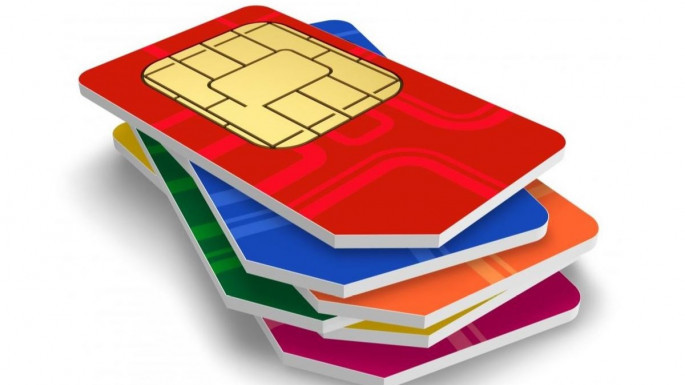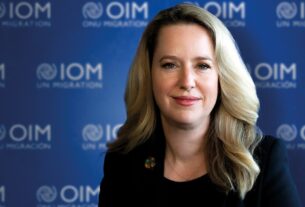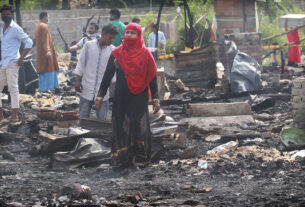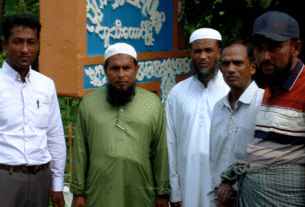The Rohingyas, who have taken shelter in Bangladesh, currently have no legal means of obtaining SIM cards. However, many of them already possess SIMs from various Bangladeshi and Myanmar mobile operators, raising security concerns for the government.
In this context, the interim government is considering granting the Rohingya community legal access to SIM cards, relevant authorities have confirmed this information to WSnews24.com.
According to a source, a meeting with mobile operators on providing SIMs to Rohingyas was held earlier this month.
Fleeing persecution in Myanmar, Rohingyas took refuge in Bangladesh, where their population now exceeds 1.2 million. Although they have not been granted permission to use SIM cards, both Bangladeshi and Myanmar SIMs are being used illegally in the camps.
Reports suggest that members of various armed groups based in the camps commit criminal activities using Bangladeshi operators’ SIMs illegally and Myanmar SIMs.
Taking the situation into consideration, in 2023, the then government had considered issuing SIM cards to Rohingyas through state-owned Teletalk, but the plan did not move forward.
“Identification of camp residents is a key issue. Without ensuring this, SIM distribution cannot proceed. The matter is under discussion at the government level,”
— BTRC Chairman Maj. Gen. (retd) Emdadul Bari
Now, the interim government is revisiting the idea.
The Bangladesh Telecommunication Regulatory Commission (BTRC) held discussions with four mobile operators on the matter on Monday.
According to BTRC and operator sources, Chief Adviser Professor Muhammad Yunus is scheduled to visit the Rohingya camps on 25 August. Discussions are under way to distribute some of the SIMs by that date.
Proposed Method of SIM Distribution
Under the current SIM sales policy, an applicant must provide an identity document and biometric verification. As Rohingyas do not possess such IDs, an alternative system is being considered.
It was proposed that mobile operators introduce a separate number series for Rohingyas. The UN Refugee Agency (UNHCR) maintains a registration database, known as the “Progress ID”, for each Rohingya. Those aged over 18 would be eligible for SIMs, which would be supplied directly to UNHCR.
Under the agreement with the government, the UNHCR database would be stored at the Bangladesh Computer Council’s (BCC) data centre. However, transferring this database to the Bangladesh government is likely to take until November.
Since the government’s target is August, discussions have focused on launching a pilot project under the Office of the Refugee Relief and Repatriation Commissioner to distribute 10,000 SIMs by 25 August.
Operators would offer three types of packages. Either the UNHCR or the government would bear the cost of the SIMs and packages. After issuing the new SIMs, the government would deactivate illegally used SIMs purchased with Bangladeshi national IDs.
What the Operators Say
Grameenphone Chief Corporate Affairs Officer (CCAO) Tanvir Mohammad welcomed the move.
“We support the government’s decision to legally sell SIMs in the Rohingya camps, which will give many people the opportunity to buy them through proper channels,” he said.
However, Shahed Alam, Chief Corporate and Regulatory Officer of Robi Axiata, voiced concerns.
“If the decision is taken for security reasons, the significant investment made by operators in this segment in SIM tax could become redundant,” he pointed out.
Banglalink Head of Corporate Affairs Taimur Rahman urged that the registration process for Rohingya SIMs be simplified.
“Extending mobile network coverage in this region will help maintain a healthy competitive environment,” he remarked.
Technology policy adviser Abu Nazam Md Tanveer Hossain suggested designating the camps as a special zone.
“Myanmar’s network is active there. For security reasons, the government should completely block external networks. Before issuing new SIMs, the old ones should be confiscated and documented,” he advised the government.




